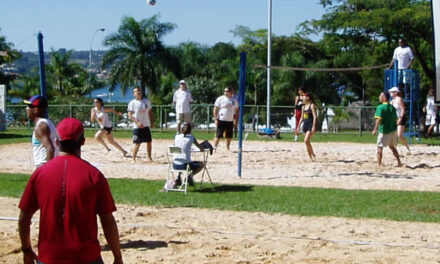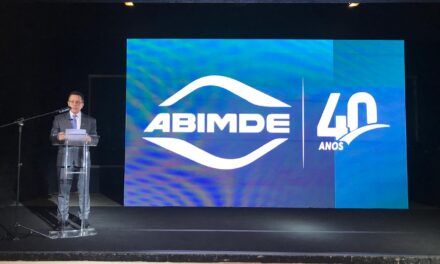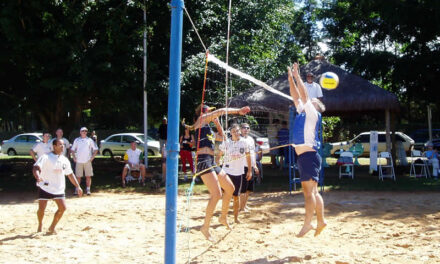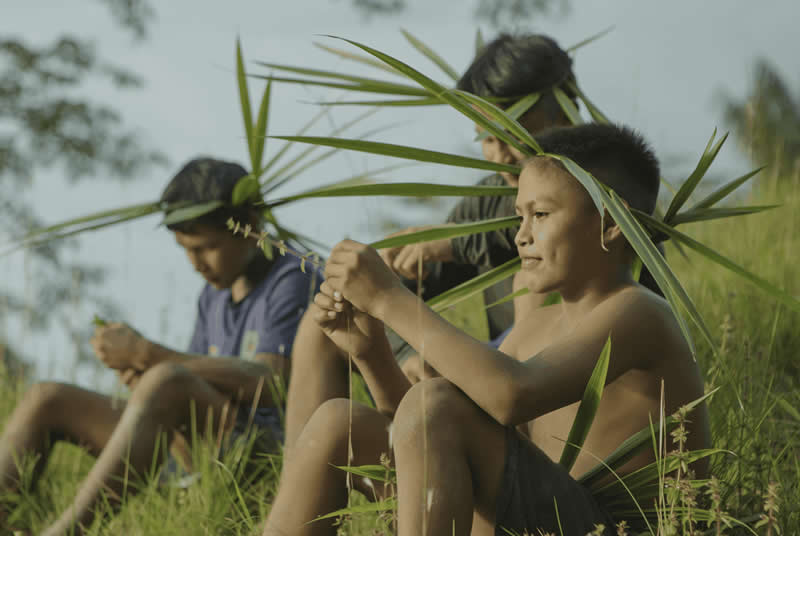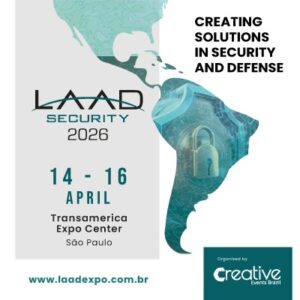The 15th Cinema and Human Rights Film Festival (MCDH) arrives in Brasília between November 27th and 30th, with free programming at the Banco do Brasil Cultural Center (CCBB). With the theme “Human rights and climate emergency: towards a sustainable future,” the event presents films and debates that address the environmental crisis, climate justice, and the sustainable ways of life of indigenous, quilombola, and riverside communities, groups that have resisted the predatory exploitation of the planet for centuries.
The program, free and open to the public, engages with the theme of COP 30, the United Nations Climate Change Conference, held in Belém, Pará. Organized by the Ministry of Human Rights and Citizenship (MDHC), the festival is one of the ministry’s main and longest-running initiatives focused on education and culture in human rights, recognizing audiovisual media as a tool for social transformation. The 2025 edition is partnered with the Federal University of Ceará (UFC), through the Cinema and Audiovisual Course, under the general coordination of Samantha Capdeville, audiovisual producer and professor of the course. In Brasília, the event is held in partnership with the Faculty of Communication of the University of Brasília and with the support of the Banco do Brasil Cultural Center (CCBB).
Filmmaker Sueli Maxakali, a leader of the Tikmũ’ũn people and a reference in Brazilian indigenous cinema, is the honoree of the 15th edition. Her most recent feature film, “Yõg Ãtak: Meu Pai, Kaiowá” (2025), will be screened at the opening session of the Festival in all participating capitals. The documentary, co-directed with Isael Maxakali, Roberto Romero and Luisa Lanna and awarded at festivals such as the Brasília Film Festival, CachoeiraDoc and the Ecofalante Film Festival, portrays the director’s search for her father, separated from his family during the military dictatorship.
The film program in Brasília, curated by Beatriz Furtado and Janaina de Paula, brings together productions that highlight the cultural and environmental diversity of Brazil. Most of the works are directed by indigenous, quilombola, riverside filmmakers and filmmakers from different regions, addressing themes such as territory, ancestry, memory, environment and resistance.
Among the films shown are “Yõg Ãtak: My Father, Kaiowá”; “There Are Still Residents Here”, by Tiago Rodrigues, about the urban disaster caused by Braskem (company) in the city of Maceió; “Pau D’Arco”, by Ana Aranha, about the struggle of rural workers in the state of Pará; “SUKANDE KASÁKÁ | Sick Land”, by Kamikia Kisedje and Fred Rahal, which denounces the effects of pesticides on indigenous lands in the state of Mato Grosso; and “Faísca”, by Barbara Matias Kariri, about the mobilization of women for the return of jaguars (onças) to the territory.
The exhibition features four main sessions, exploring different dimensions of the relationship between humanity and nature. The children’s session includes “Chico Bento and the Wonderful Guava Tree” and other works focused on children’s imagination and regional diversity. The Earth/Nêgo Bispo session highlights Quilombola thought; the Water/Antônia Melo session brings together films on water issues; and the Forest/Raoni session honors the Kayapó leader, with works centered on the defense of indigenous peoples and the Amazon.
All films have sign language interpretation and subtitles for the deaf and hard of hearing, and the sessions include accessible discussions in sign language.
Click here to see the movie schedule.
Source: CCBB website, with adaptations.
Português
15ª Mostra Cinema e Direitos Humanos (MCDH) no CCBB
A 15ª Mostra Cinema e Direitos Humanos (MCDH) chega a Brasília entre os dias 27 e 30 de novembro, com programação gratuita no Centro Cultural Banco do Brasil (CCBB). Com o tema “Direitos humanos e emergência climática: rumo a um futuro sustentável”, o evento apresenta filmes e debates que abordam a crise ambiental, a justiça climática e os modos de vida sustentáveis de povos indígenas, quilombolas e ribeirinhos, grupos que resistem há séculos à exploração predatória do planeta.
A programação, gratuita e aberta ao público, dialoga com o tema da COP 30, a Conferência das Nações Unidas sobre Mudanças Climáticas, realizada em Belém, no Pará. Realizada pelo Ministério dos Direitos Humanos e da Cidadania (MDHC), a mostra é uma das principais e mais longevas ações da pasta voltadas à educação e cultura em direitos humanos, reconhecendo o audiovisual como ferramenta de transformação social. A edição 2025 tem parceria com a Universidade Federal do Ceará (UFC), por meio do Curso de Cinema e Audiovisual, sob a coordenação geral de Samantha Capdeville, produtora audiovisual e professora do curso. Em Brasília, a realização da Mostra tem parceria com a Faculdade de Comunicação da Universidade de Brasília e o apoio do Centro Cultural Banco do Brasil (CCBB).
A cineasta Sueli Maxakali, liderança do povo Tikmũ’ũn e referência no cinema indígena brasileiro, é a homenageada da 15ª edição. Seu longa mais recente, “Yõg Ãtak: Meu Pai, Kaiowá” (2025), será exibido na sessão de abertura da Mostra em todas as capitais participantes. O documentário, codirigido com Isael Maxakali, Roberto Romero e Luisa Lanna e premiado em festivais como o Festival de Brasília, o CachoeiraDoc e a Mostra Ecofalante, retrata a busca da diretora por seu pai, separado da família durante a ditadura militar.
A programação de filmes em Brasília, com curadoria de Beatriz Furtado e Janaina de Paula, reúne produções que evidenciam a diversidade cultural e ambiental do Brasil. A maioria das obras é dirigida por cineastas indígenas, quilombolas, ribeirinhos e realizadores de diferentes regiões, abordando temas como território, ancestralidade, memória, meio ambiente e resistência.
Entre os filmes exibidos estão “Yõg Ãtak: Meu Pai, Kaiowá”; “Ainda Há Moradores Aqui”, de Tiago Rodrigues, sobre o desastre urbano causado pela Braskem em Maceió; “Pau D’Arco”, de Ana Aranha, sobre a luta de trabalhadores rurais no Pará; “SUKANDE KASÁKÁ | Terra Doente”, de Kamikia Kisedje e Fred Rahal, que denuncia os efeitos dos agrotóxicos em terras indígenas no Mato Grosso; e “Faísca”, de Barbara Matias Kariri, acerca da mobilização de mulheres pelo retorno das onças ao território.
A Mostra conta com quatro sessões principais, explorando diferentes dimensões da relação entre humanidade e natureza. A sessão infantil inclui “Chico Bento e a Goiabeira Maraviósa” e outras obras voltadas ao imaginário infantil e à diversidade regional. A sessão Terra/Nêgo Bispo destaca o pensamento quilombola; a Água/Antônia Melo reúne filmes sobre questões hídricas; e a Floresta/Raoni homenageia o líder caiapó, com obras centradas na defesa dos povos indígenas e da Amazônia.
Todos os filmes possuem Libras e Legendagem para Surdos e Ensurdecidos, e as sessões contam com debates acessíveis em Libras.
Clique aqui para ver a programação.
Fonte: Website do CCBB, com adaptações.

